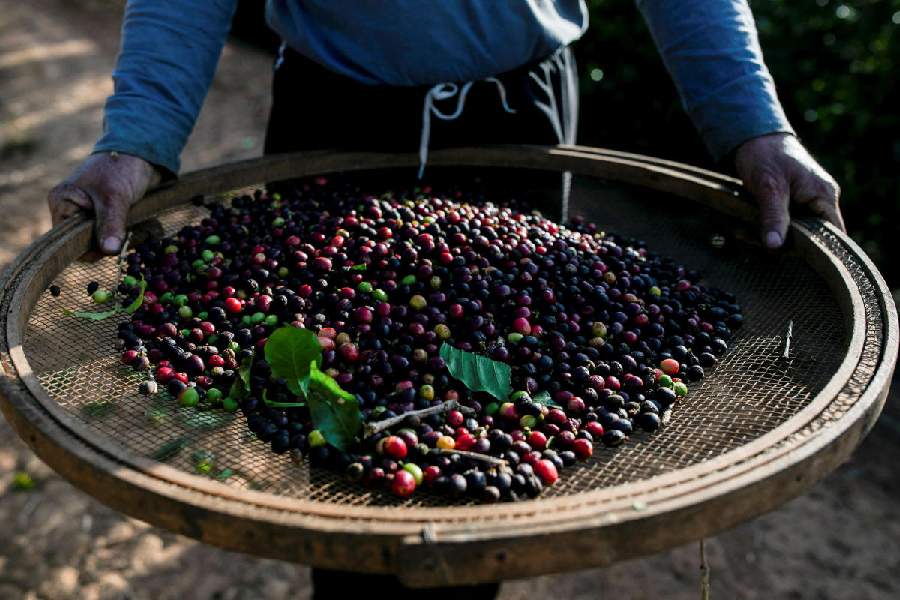The world’s most popular coffee predated modern humans.
A new study has suggested that Arabica coffee emerged between 300,000 and 600,000 years ago through the natural mating of two ancestral coffee species.
Historical accounts and previous studies had already pointed to Yemen as the site for the earliest coffee cultivation around the 15th century and Ethiopia as the birthplace for coffee plants even earlier. The new study, relying on genome sequences, has yielded the most detailed insights yet into the origin and history of modern coffee.
Arabica coffee, which accounts for 60 per cent of coffee products worldwide, formed through what scientists call a hybridisation event between the ancestors of present-day Coffea canephora (Robusta coffee) and Coffea eugenioides, a species indigenous to East Africa. But all earlier studies had dated this event to anywhere between 10,000 years and one million years ago.
Now an international team of researchers has calculated that the hybridisation event took place between 300,000 and 600,000 years ago and the genomic separation of wild coffee and cultivated varieties occurred around 30,000 years ago.
“We’ve used genomic information in plants alive today to go back in time and paint the most accurate picture possible of Arabica’s history,” Victor Albert, professor of biological sciences and study team member at the University of Buffalo in the US said in a media release.
The study by Albert and his collaborators, published on Monday in the journal Nature Genetics, also provides information about how modern cultivated varieties are related to each other.
“The timing (of origin) is a novel finding,” Albert also told The Telegraph via email. “The 300,000 years to 600,000 years is our best estimate... but perhaps more important is our discovery of the family relationships of major coffee varieties and uncovering what may be an important region of the genome that could be tinkered with for better disease resistance.”
Their findings are consistent with historical accounts that coffee cultivation started in Yemen around the 15th century. Around 1600 AD, according to historical accounts, seven seeds were smuggled out of Yemen and helped establish Indian Arabica varieties.
A century later, the Dutch began to cultivate Arabica in southeast Asia and in 1706 an Arabica plant was used to establish coffee cultivation in the Caribbean.
“It looks like Yemeni coffee diversity may be the founder of all the current major varieties,” said Patrick Descombes, a genomics expert at Nestle Research and study collaborator. “Coffee is not a crop that has been heavily crossbred like maize or wheat to create new varieties. People chose a variety they liked and then grew it ... the varieties we have today have probably been around for a long time.
The study found that around 30,000 years ago, the wild varieties and varieties that would eventually get cultivated split from each other.










